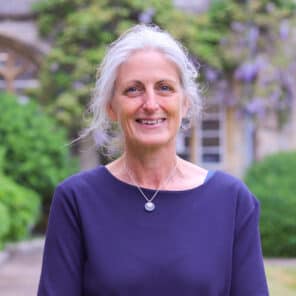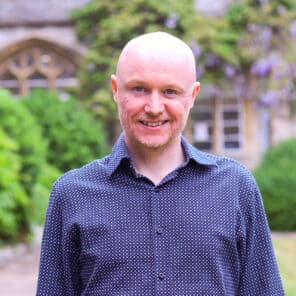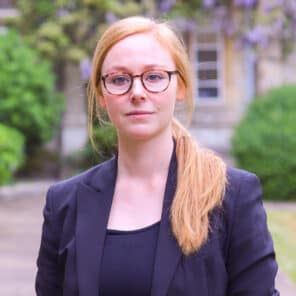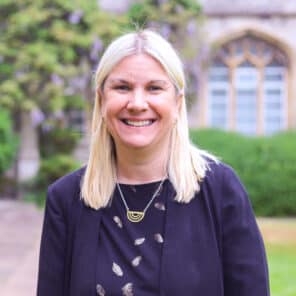Top 10
University for Psychology
1. Guardian University Guide 2022
1st
for research intensity out of 101 UK Psychology departments
2. Complete University Guide League Tables 2021
3rd
for student satisfaction in Psychology in the UK
3. Complete University Guide 2023
Join us for a virtual Open Evening
Be the first to know about upcoming postgraduate Open Evening dates.
Overview
Undertake a new, original research project within the field of psychology
Psychological studies have gained increasing importance across a wide range of sectors, including human resources, education, sport, social care, and the creative industries.
Build your unique research project
You will work to create an original research project or other advanced scholarship of a quality to satisfy peer review, extend the forefront of the discipline and merit publication.
Previous research projects have included:
- Collaboration with the local NHS Hospital Trust
- Consultancy for Lloyds Pharmacy
- Consultancy for the Department for Work and Pensions
- Message framing in various health contexts
- Workplace integration
- Using cognitive restructuring to improve school performance
Join an internationally renowned department
The research degree programme provides you with an outstanding learning experience in a supportive community of learning. The department is known nationally and internationally for excellence in research and teaching and all its staff are engaged in conducting their own research.
Discover our thriving research culture
Our Department of Psychology has a thriving research culture among its staff and students, as well as the POWER (People & Well-being in the Everyday Research) Centre, through which it interacts with external individuals and organisations.
The Course
Demonstrate your systematic understanding of the field of psychology
Undertake your original research project
Throughout the course, you will develop your ability to conceive, design, implement and adapt a substantial process of original research with scholarly integrity, which makes a contribution to the field of psychology through original research.
This will culminate in a substantial body of work, some of which will merit national or international refereed publication.
Progression requirements
During the programme there are a number of academic milestones that the student will need to complete.
- Confirmation of research project (2000 word proposal and completed Form 1) after three months (full time) and six months (part-time)
- Satisfactory Annual Review reports with supervisory committee
- Major Review to upgrade from MPhil to PhD programmes (only for PhD programmes).
Teaching and Assessment
Feel supported to complete your substantial research project
Teaching
The programme is delivered through a supervised research project, and you will have a supervisory team of at least two appropriately qualified academic staff, one of whom will be your Director of Studies.
Assessment
The award of MPhil or PhD is assessed through submission of a written thesis or equivalent for practice-based disciplines and an oral examination with a panel of examiners (viva voce). The viva is compulsory for PhD and optional for MPhil.
Facilities
Use industry standard equipment
Use facilities including the Brain Imaging Unit, VR Immersive Suite, Psychological Test Centre, Interview and Observation Suite and individual fully equipped testing cubicles and use industry standard equipment and software throughout your studies.
Brain Imaging Unit and Neuroimaging: NIRScout
A neuroimaging system with a 3D scalable ultra-high-density near-infrared spectroscopy platform that uses NIRScout and NIRx Medical Technologies.
Virtual Reality Unit and Immersive Suite
Suite including an affective immersive emotional Virtual Reality stimuli package that allows researchers to create different worlds for Neuroscience Research using aLIAS and Vizard.
Biopac Advanced Physiological Data Acquisition system
You can measure brain, heart and motor neuron activity with Biopac software.
Eye tracking software
Monitor and track shifts in visual attention with our specialist eye tracking software and equipment within our dedicated psychology labs..
Specialist Advanced Research Software
Software for measuring and manipulating a broad range of psychological constructs; Inquisit, Qualtrics, Noldus Observer XT, E-prime, Superlab and Nvivo.
Learning Resource Centre
The Learning Resource Centre (LRC) contains the library, a café, IT/teaching rooms, and the Support and Information Zone (SIZ).
Library
Our campus library holds more than 200,000 books and over 500,000 eBooks.
Laptops
Use our loanable laptops during in offsite testing such as at schools and clinics.
Specialist advanced research equipment
- Functional near-infrared spectroscopy (fNIRS) neuroimaging equipment: NIRScout – NIRx Medical Technologies
- Immersive Virtual Reality System for Neuroscience Research: System includes aLIAS Laptop, Biopac MP15
- Virtual Reality development platform: Vizard, Oculus Head set (DK2 and Rift), 3D Shopping Centre Software, 3D Shopping Centre Interior Software
- Physiological data acquisition system: BioPac
- 12x Neuro-anatomical brains • Anatomical Model – Torso
Specialist advanced research software
- AMOS
- CMA – Comprehensive Meta-Analysis software: https://www.meta-analysis.com/
- Data Miner
- E-prime
- Inquisit
- NOLDUS – The Observer XT: Software package for the collection, analysis, and presentation of
observational data - Nvivo
- Qualtrics
- SPSS
- SuperLab
Neuropsychological assessment tools
- Behavioural Assessment of the Dysexecutive Syndrome (BADS)
- California Verbal Learning Test – 2nd UK Edition
- Cambridge Prospective Memory Test
- Delis-Kaplan Executive Function System
- Doors and People
- Kaufman Brief Intelligence Test (K-BIT)
- MAE Token Test
- Middlesex Elderly Assessment of Mental State
- MMSE Test Forms
- Raven’s Progressive Matrices (Ian personal copy)
- RAVLT – Rey Auditory Verbal Learning Test
- Wechsler Adult Intelligence Scale, 4th Edition, UK
- Wechsler Memory Scale (WMS)
- Wisconsin Card Sorting Test 64 – Card Version
Our Research
Discover our range of thriving research centres, labs, and initiatives
The Department of Psychology and Counselling has an active and thriving research culture across a number of different research laboratories and various subdisciplines.
People and Well-Being in the Everday Research Centre (POWER)
Specialising in the provision of rigorous evidence-based solutions to enable people to reach their full potential.
Cognitive Ageing and Dementia Research Lab
Exploring early identification of neurodegenerative processes and how to positively influence the lives of older adults.
Child and Adolescent Socio-Emotional Development Lab
Researching emotional, cognitive and social development across childhood and adolescence.
Mental Health and Wellbeing Lab
We explore the effects of mindfulness and mindfulness-based interventions.
Cultural and Individual Difference in Social Cognition Lab
Our research focuses on social aspects including perception, attitudes, judgment and decision making, and relationships.
Functional Behavioural Science Laboratory
Focusing on six themes including experimental psychopathology and cognitive psychology.
Quantitative Criminology Lab
Using statistical data to understand and predict criminal behaviour and improve investigative practice.
Sexualised Violence and Abuse Research Lab
We investigate the psychological processes associated with sexualised violence and abuse, and their impact on individuals.
Research Staff
Meet our team of experienced and expert research staff
Professor Antonina Pereira
Antonina’s research is particularly focused on Prospective Memory assessment and rehabilitation in prodromal Alzheimer’s disease through behavioral and functional magnetic resonance imaging (fMRI) paradigms.
This research has led to the successful capture of external income for research activity by the Portuguese Foundation for Science and Technology to develop a new psychometric tool for the assessment of Prospective Memory across the lifespan and by the Bial Foundation to explore the neurophysiological mechanisms of aging.
Moitree Banerjee
Esther Burkitt
Karen Rodham
Ian Tyndall
Roy Spina
Rachel King
Rachel is a senior lecturer in biological psychology who has a DPhil in Experimental Psychology from the University of Oxford.
She is a postdoctoral researcher in the Cognitive Aging and Dementia Laboratory and co-lead for the newly founded Consumer Neuroscience Laboratory. Her administrative role in the department is Laboratory and Technology Officer and she is a member of the research ethics committee.
She has a keen interest in experimental methodology and the applications of technology in psychological research.
Stephanie Jane Bennett
Dr. Valentina Canessa-Pollard
Valentina is a performance coach and chartered psychologist. She is a senior lecturer and Programme Lead for BSc Counselling Psychology and MSc Coaching Psychology.
Valentina is passionate about supporting adults of all ages in aligning their lives with their aspirations. She specialises in career transitions and enhancing work and academic performance through a systemic approach. She also focuses on fostering meaningful connections with the natural environment to improve sustainable change.
Beyond coaching, Valentina’s professional interests and background are centred on preventing sexualised violence and abuse and facilitating recovery through psychological interventions. Find out more about the Sexualised Violence and Abuse Research Lab.
Careers
Where you could go after your studies
Those completing their doctoral programme will have the qualities and transferable skills necessary for employment requiring the exercise of personal responsibility and largely autonomous initiative in complex and unpredictable situations, in professional or equivalent environments.
Research students have access to the University’s Staff Development Programme as well as a range of other formal and informal training activities coordinated at the department, area, or University level
Course Costs
Course Fees 2023/24
UK fee
International fee
For further details about fees, please see our Tuition Fee page.
You can find further details on funding options on our Funding Options page.
Entry Requirements
The standard requirement for an MPhil/PhD is a first or upper-second honours degree and/or usually a relevant Master’s degree. Candidates with other qualifications are considered individually on their merits. All students are interviewed by their potential supervisor(s) and a Research Degree Coordinator or nominated other.
Research approval
Your research project must be ‘approved’ by the Research Degrees Group 3 months (full time) / 6 months (part time) into candidature.
The Research Degrees Group will take account of the field in which you wish to work, the availability of resources, the nature of the University’s current research strengths, and the particular needs that you may have for specialist facilities.
All projects are considered by two experienced scrutineers who advise on the strengths and weaknesses of the research proposals presented to the Group.
How to apply
You should review the University’s research specialisms before completing a speculative application.
If you are interested in doing a research degree:
- Please complete Section 1 of the Application to Register on a Postgraduate Research Programme Form.
- Email the form to pgradmissions@chi.ac.uk.
Your form will be circulated to the appropriate academics so we can identify any supervision options and arrange an interview with you.
You should register for the award you intend to graduate with, either a PhD (Doctor of Philosophy) or an MPhil (Master of Philosophy).









